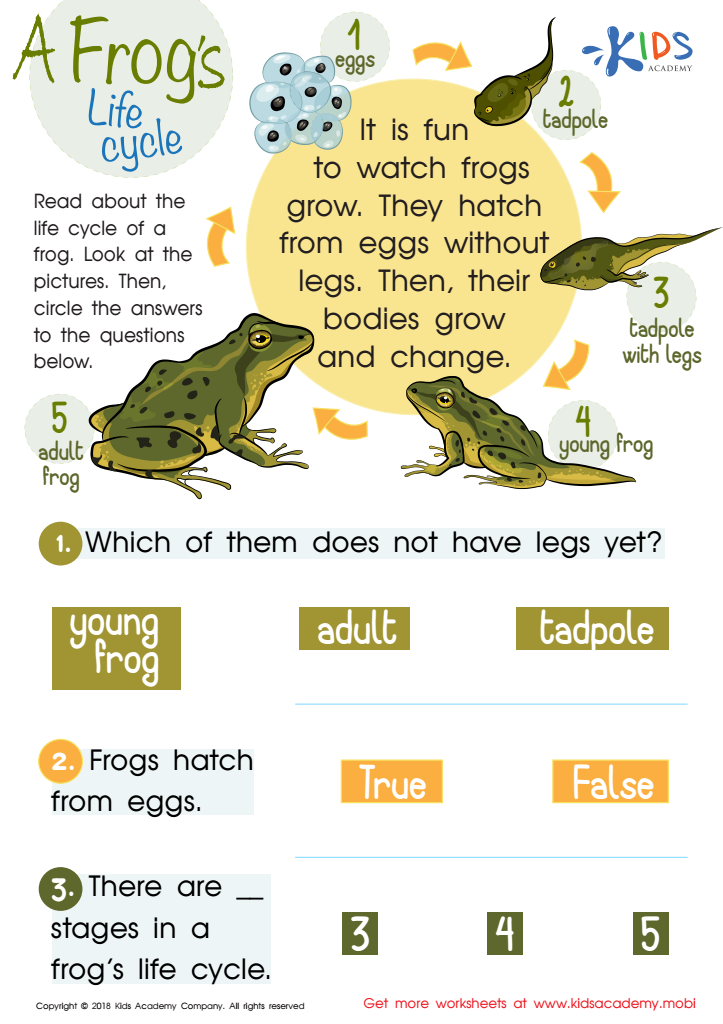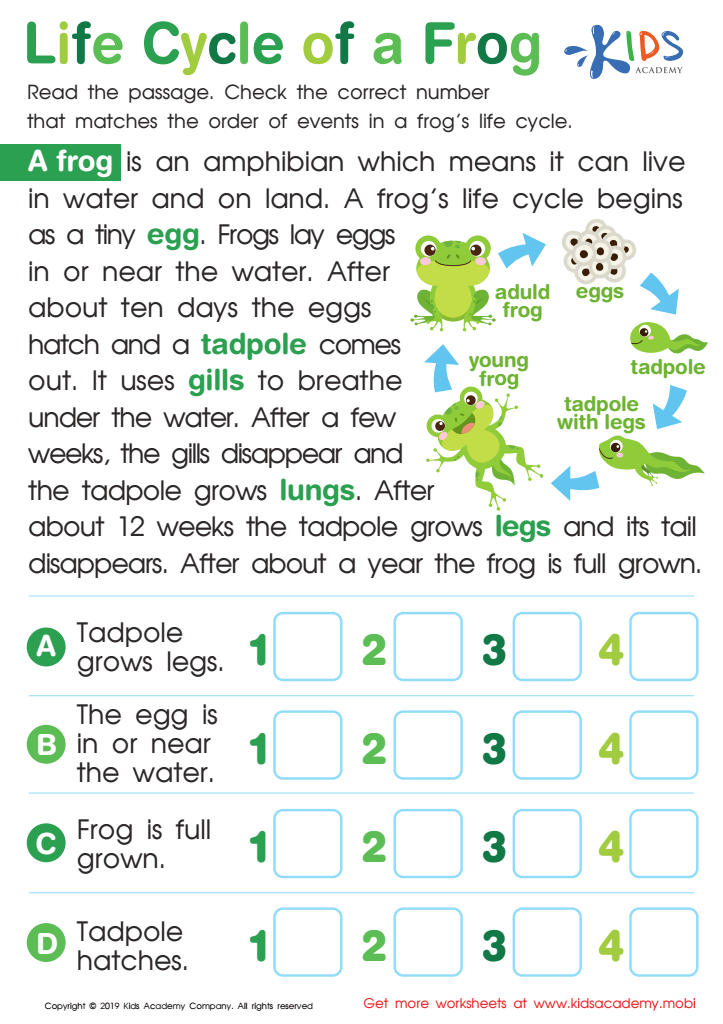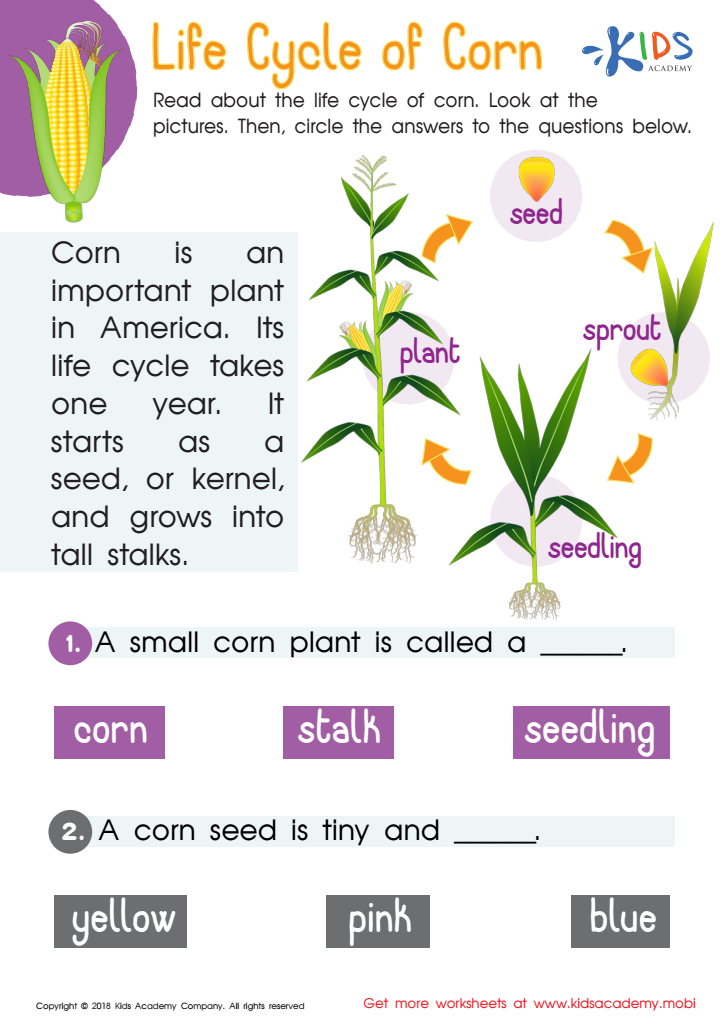Understanding life cycles Easy Reading Non-Fiction Worksheets for Ages 4-7
3 filtered results
-
From - To
Explore the fascinating world of life cycles with our "Understanding Life Cycles Easy Reading Non-Fiction Worksheets" designed for young learners aged 4-7. These engaging worksheets introduce children to the concept of life cycles through simple language and captivating visuals. With activities tailored to enhance reading skills and comprehension, kids will discover the growth and changes in plants, animals, and even insects. Parents and educators can use these worksheets to support early literacy and critical thinking. Encourage curiosity and a love for learning as children embark on their journey to understand the cycles of life in a fun and interactive way!


A Frog’s Life Cycle Worksheet


Life Cycle of a Frog Worksheet


Life Cycle of Corn Worksheet
Understanding life cycles is crucial for young children, especially those aged 4-7, as it lays the foundation for essential scientific concepts and critical thinking skills. This non-fiction topic fascinates young minds by connecting them to the world around them, fostering curiosity about nature and ecosystems. Parents and teachers should prioritize this subject as it promotes an understanding of biodiversity, illustrating how plants, animals, and humans grow, reproduce, and thrive within their environments.
Engaging with life cycles encourages observational skills and kinesthetic learning through hands-on activities like gardening or animal studies. As children explore concepts such as metamorphosis in butterflies or the growth of plants from seeds to full bloom, they develop empathy and a sense of responsibility towards living things. This understanding not only nurtures a love for science but also cultivates environmental stewardship, critical for fostering future generations that care for the planet.
Additionally, life cycles can open doors to interdisciplinary learning, connecting science with art, literature, and math. By introducing books like "Understanding Life Cycles," parents and teachers can spark meaningful discussions, sparking a child’s enthusiasm for exploration and instilling a lifelong love of learning. Overall, this educational focus enriches a child’s early experiences and personal growth.
 Assign to My Students
Assign to My Students














